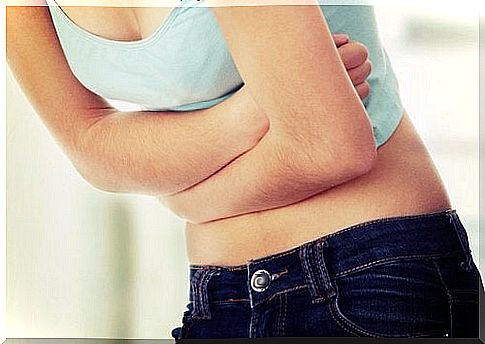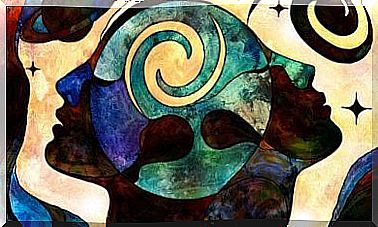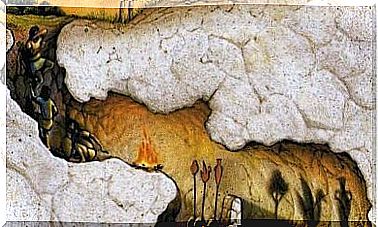How Does Caffeine Poisoning Occur?

Caffeine is a substance that occurs naturally in many plant leaves and seeds. We can also artificially manufacture it, and add it to certain foods and beverages. It is considered to be a stimulating substance because it activates the central nervous system, and increases the level of alertness. But you can also get caffeine poisoning.
Caffeine is found in tea, coffee, many sports drinks, painkillers and over-the-counter medications. In its natural form, it has a very bitter taste. However, most caffeinated beverages are processed enough to hide the bitter taste.
Caffeine gives most people an “injection” of energy, a bit like getting “high”. It can improve the mood for a temporary period. However, others do not get very high from caffeine and they choose to stop consuming it.
On the other hand, many people feel that it increases their level of alertness. Moderation is the secret behind caffeine. However, high doses of caffeine can cause anxiety, dizziness, headaches and nervousness. It can also interfere with our normal sleep pattern, causing our body to ignore our biological sleep rhythm.
Caffeine can be addictive
Most professionals agree that caffeine is safe when ingested in moderate amounts. Experts say that between 200 mg and 300 mg is considered to be a moderate amount of caffeine for an adult.

However, consuming just 100 mg of caffeine a day can cause a person to develop addiction. This means that you may develop withdrawal symptoms (such as fatigue, irritability and headaches) if you suddenly stop taking it.
The caffeine we consume comes from various sources, such as coffee, tea, soda, energy drinks, over-the-counter painkillers, cold medicines, energy supplements, weight loss products and chocolate.
Manufacturers are increasing the consumption of caffeine, as an additive to vitamins and foods. More than 85% of children and adults consume it regularly. This explains why some consumers of caffeine exhibit symptoms similar to problem drug use, including tolerance and abstinence.
Caffeine poisoning
We characterize caffeine poisoning by recent caffeine intake in association with five or more signs or symptoms. These symptoms may develop during or shortly after ingestion.
The symptoms of caffeine poisoning are: Upheaval, nervousness, agitation, insomnia, flushing of the face, increased diuresis and discomfort in the gastrointestinal tract. Furthermore, these symptoms can occur at low doses of it in vulnerable individuals, such as children, the elderly, or people who are not regularly exposed to it.
Symptoms that usually occur after consuming over 1 gram of caffeine a day are: Muscle spasms, incoherent thoughts and language, tachycardia or cardiac arrhythmia, periods of restlessness or psychomotor agitation.
Caffeine poisoning may not occur if you have a high tolerance to this substance. When diagnosing caffeine poisoning, signs and symptoms can cause significant discomfort or deterioration in social or work situations, or other important areas of our lives.
Furthermore, the signs and symptoms should not be due to other medical conditions. Nor should they be better explained, due to another mental disorder or poisoning of another substance. This criterion, we have quoted from the Diagnostic and Statistical Manual of Mental Disorders (DSM-5).

Moderation is important to avoid caffeine poisoning
As with everything else in life, moderation is important. Sensory disturbances (such as ringing in the ears and flashing flashes of light) can occur with high doses of caffeine.
Although large doses of caffeine can increase the heart rate, smaller doses can reduce it. Researchers have not yet determined whether an excessive intake of caffeine can cause headaches.
Upon physical examination, you may see agitation, restlessness, sweating, tachycardia, redness of the face and an increased movement in the bowel. As we have mentioned, it is extremely important that you moderate your caffeine intake.
How Can I Stop My Caffeine Addiction?
Caffeine has a half-life of about 4-6 hours. Therefore, the symptoms of caffeine poisoning, as a rule, will disappear within the first few days, and it has no known, long-lasting consequences.
However, people who consume high doses of it (e.g. 5-10 g) may need medical supervision. Such high doses can be fatal. With age, people tend to have an increased, intense reaction to it.

The primary complaints of caffeine poisoning are due to the effects of sleep and a feeling of hyperactivity. Researchers have observed caffeine poisoning in young people after consuming products with a high caffeine content. This includes energy drinks.
Children and adolescents may be at increased risk of being poisoned, due to several factors. Among these, low weight, lack of tolerance and a little knowledge about the pharmacological effects of caffeine, can expose them to a greater risk.
In conclusion, do not underestimate the power of caffeine. Take it in moderation. Caffeine poisoning can cause disruption to your personal and professional life. It can hinder you in your work or performance in school, and it can worsen your ability to regulate emotions or comply with demands.









